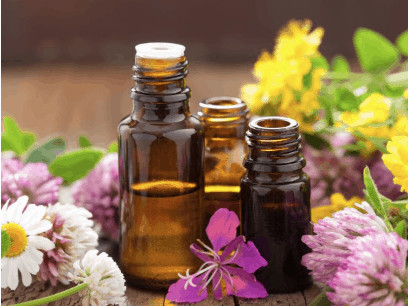The Best Carrier Oils For Hair Explained! What You Need To Know…

- Introduction
- What Are Carrier Oils?
- The Benefits of Carrier Oils For Your Hair
- How To Choose The Right Carrier Oil For Your Hair
- Best Carrier Oils For Dry Hair
- 1. Organic Moringa Oil
- 2. Argan Oil
- 3. Almond Oil
- Best Carrier Oils For Oily Hair
- 1. Pumpkin Seed Oil
- 2. Grapeseed Oil
- 3. Castor Oil
- Best Carrier Oils For Frizzy Hair
- 1. Coconut Oil
- 2. Jojoba Oil
- 3. Avocado Oil
- How To Get The Best Results Using Carrier Oils For Hair
- Conclusion
In recent years there has been a growing interest in natural hair care solutions. Enter carrier oils, which have emerged as a popular addition to those who are looking to improve the health and appearance of their hair. Carrier oils are versatile because they can be used on their own or blended with other products/oils to create a customized hair treatment. In addition to hydrating and nourishing the hair, they also encourage growth and shield it from harm. Let’s examine in greater detail why carrier oils might be a useful addition to your hair care regimen.
What Are Carrier Oils?

What are carrier oils?
Carrier oils are naturally derived oils extracted from nuts, seeds and other plant-based sources. They are commonly obtained through cold-pressing. This is when a person presses or crushes a plant without subjecting it to heat. This includes oils such as Jojoba Oil, Sunflower Oil and Moringa Oil which are commonly used to dilute essential oils. They are also very good at nourishing and moisturizing hair. They are brimming with nutrients like vitamins, minerals, and antioxidants that support hair growth and protect it from damage. Using carrier oils in your routine can help transform your hair and give it the love and care it needs, regardless of whether you have dry, oily, frizzy, or damaged hair.
The Benefits of Carrier Oils For Your Hair

Benefits of carrier oils for your hair.
Due to carrier oils multiple advantages for the health of the hair and scalp, they are commonly employed in hair care products. They are well renowned for their ability to effectively moisturize hair and keep it nourished. Essential fatty acids included in carrier oils nourish dry hair, making it smoother and easier to handle. A healthy environment is necessary for your hair to develop, and hair health begins at the scalp. Using their hair-friendly botanical components to reduce inflammation, carrier oils can calm an itchy or dry scalp.
Certain carrier oils, like Jojoba and Castor Oil, are thought to promote the stimulation of hair growth. They accomplish this by enhancing the scalp’s blood flow, which in turn strengthens hair follicles. Carrier oils cover the hair shaft, allowing it to reflect light and give the impression that your hair is shinier and healthier. Your hair needs protection from a variety of elements, such as pollution and the sun’s harmful UV rays. Carrier oils provide your hair with a layer of protection that guards against any potential harm.
How To Choose The Right Carrier Oil For Your Hair

How to choose the right carrier oils for your hair.
It can be difficult to choose the correct carrier oil for your hair, but it’s crucial when using them to meet your unique hair demands. You should think about the particular needs of your hair type and answer the preliminary hair-related questions – is my hair thin or thick? Is my hair straight or curly? Is my scalp dry or oily? It should be very simple to select the best carrier oil for your hair once you are aware of your hair type. You should also take your scalp’s condition into account. For instance, you should use jojoba or moringa oil, which has a calming effect, if you have an itchy or dry scalp.
As of now, the FDA considers carrier oils to be a supplement, and you must be aware of this. In other words, research is still on-going, and these oils – while helpful – are not meant to cure or prevent any diseases or medical conditions. However, there are thousands of years of anecdotal evidence to support these wellness claims, and carrier oils can be a real game-changer when used properly.
Tea Tree Oil might help remove dandruff and prevent scalp buildup, while researchers have shown that rosemary oil promotes hair development. As a result, the most crucial consideration when selecting a carrier oil is to make sure it is appropriate for your hair type. Let’s examine the various hair types and the carrier oils that are most effective for them.
Best Carrier Oils For Dry Hair

Best carrier oils for dry hair.
Because they nourish and moisturize the hair while doing no harm, carrier oils are excellent solutions for treating dry hair. They are fantastic all-natural additions to shampoos and conditioners which can provide valuable hydration and nourishment through their botanical properties.
1. Organic Moringa Oil
When applied to dry hair, moringa oil cleanses the scalp, feeds the roots, and encourages healthier-looking strands. Moreover, it has a lot of behenic acid, a natural sunscreen that shields hair from UV damage. Moringa Oil also benefits the scalp by preventing dandruff and keeping it clean, which promotes healthier hair growth.
2. Argan Oil
This oil, which comes from the argan kernel, is full of fatty acids, antioxidants, and vitamins that can help hydrate and nourish dry locks. Moreover, it helps to control frizz and can give lifeless, drab hair some shine.
3. Almond Oil
By hydrating your hair and scalp with a thin, easily absorbable substance, this nourishing carrier oil helps to strengthen and soften your hair. Vitamin B7 (biotin), found in abundance in almond oil, helps to produce keratin. The protein known as keratin aids in the development of new hair growth.
Best Carrier Oils For Oily Hair

Best carrier oils for oily hair.
You might be reluctant to apply more oil to your locks if you already have oily hair. However, using the right carrier oils can actually help balance out your scalp’s natural oil production, leading to healthier, less greasy hair. Whether you’re dealing with greasy locks or just looking for a way to add more moisture to your hair, these carrier oils are definitely worth considering.
1. Pumpkin Seed Oil
Zinc, which helps control sebum production in the scalp, is abundant in pumpkin seed oil. Oily hair can result from overproduction of sebum, our body’s natural oil, on the surface of the scalp. Also, Pumpkin Seed Oil is lightweight and able to penetrate the hair and scalp with ease. This lessens the production of extra oil in the scalp by hydrating the hair without leaving a greasy residue behind.
2. Grapeseed Oil
A fantastic all-natural solution to help control oil production and enhance the health of greasy hair is grapeseed oil. In order to prevent breakage, it helps to hydrate and strengthen hair. Stronger hair is also less prone to get greasy and oily. It is abundant in antioxidants, Vitamin E, and linoleic acid, all of which help to shield hair from environmental harm.
3. Castor Oil
Ricinoleic acid, which has anti-inflammatory and antibacterial properties, is abundant in castor oil. These characteristics can assist in balancing and lowering excessive oil production in the scalp. Moreover, it has excellent cleansing capabilities that help to eliminate excess oil, grime, and flakes from the scalp. By clearing up clogged hair follicles, encouraging a healthy scalp, and – lowering oiliness, this oil aids in the maintenance of healthy hair.
Best Carrier Oils For Frizzy Hair

Coconut oil.
Frizzy hair can be a frustrating problem to deal with, but using carrier oils can help tame those unruly strands and restore shine and manageability. You may be dealing with humidity-induced frizz or simply wanting some extra nourishment for your hair, or whatever the reason may be, Coconut, Jojoba and Avocado Oil are our go-to carrier oils for frizzy hair!
1. Coconut Oil
This carrier oil is highly nourishing and penetrates deeply into the hair shaft. Coconut oil is rich in fatty acids which help keep hair looking shiny, feeling soft and staying moisturized. It also aids in encouraging hair elasticity which prevents breakage. Healthy, nourished hair is less prone to frizziness and hair that contains moisture is far easier to detangle and manage.
2. Jojoba Oil
The hair and scalp easily absorbs Jojoba Oil, because it’s lightweight. This plant-based oil is rich in vitamins and minerals and provides valuable hydration to dry hair. Additionally, Jojoba Oil has a similar structure to natural oils produced by the scalp, which means its ability to balance the production of oil may lead to less frizzy hair.
3. Avocado Oil
Avocado Oil is a great choice for frizzy hair because it helps to moisturize, detangle, nourish and protect the hair, which in turn makes it smoother, shinier and easier to manage. The rich antioxidants found in Avocado Oil assist in protecting the hair from damage caused by free radicals. Free radicals can damage the hair cell’s integrity and this leads to frizz.
How To Get The Best Results Using Carrier Oils For Hair

How to get the best results from carrier oils.
In addition to hydrating and nourishing the hair, carrier oils also encourage growth and lessen breakage. Yet, there are some crucial rules to abide by to make sure the carrier oil you’ve selected has the greatest impact possible on the health of your hair and scalp.
To get good results, you must continuously use a carrier oil. If your hair is especially dry or damaged, you might need to use it more frequently than once a week. Choose a high quality oil that is pure and contains no artificial ingredients or fragrances. Always try to utilize organic, cold-pressed oils whenever you can. Cold-pressed oils usually don’t involve potentially-harmful bleaches in their process, they don’t contain synthetic fragrances and they don’t have any harmful solvent residues.
For maximum effectiveness you should apply the oil to hair that is damp, because this helps to lock in the moisturizing capabilities. Once you’ve applied it you should take a few minutes to massage the oil into your scalp. This helps to stimulate blood circulation and ensure the oil is properly absorbed into your scalp.
Conclusion
There is no denying that adding carrier oils to your hair and skincare routines offers you a host of advantages. These oils are a natural and efficient approach for you to reach your hair goals, from nourishing and hydrating to encouraging hair growth and preventing damage. Keep in mind to adhere to our advice when choosing carrier oils for your particular hair type. So feel free to give them a shot! You deserve thick, shiny hair!


